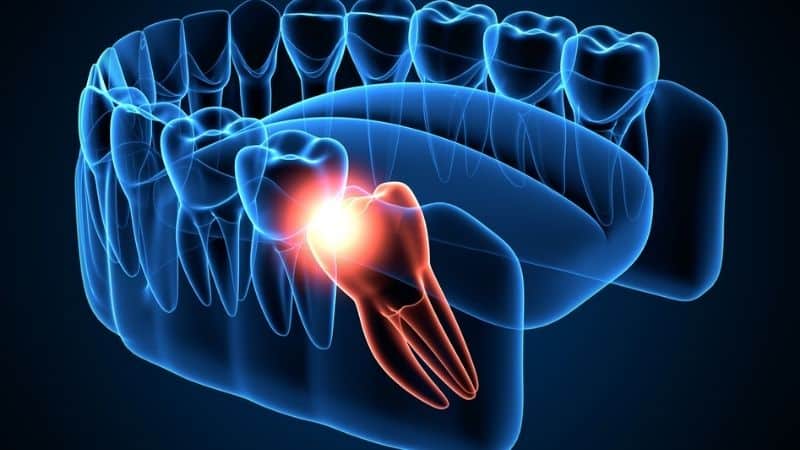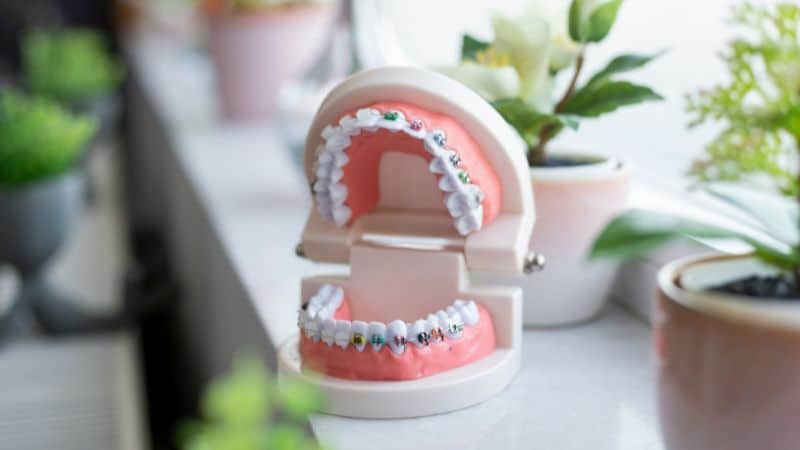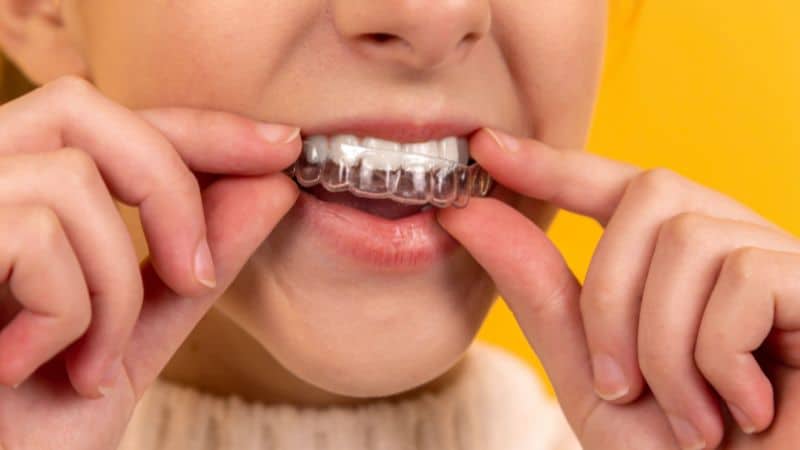
Wisdom Teeth Extraction: What You Need to Know
For many teens and young adults, the decision to have your wisdom teeth removed can be a big one. Perhaps your dentist told you that you need to do so, or your parents and other family members have had theirs extracted. What should you expect? Wisdom teeth extraction is not nearly as intimidating as it may sound, and the procedure, as well as the recovery, can be seamless when you are well-informed.
What Are Wisdom Teeth?
The wisdom teeth are the third molars. Typically, these molars come in during early adulthood if not extracted prior to this. These molars sit all the way in the back of your mouth, both on the upper and lower jaw. You don’t need these extra teeth as you can chew and process food properly without them. If they do grow in and come in healthy, they can help improve chewing. In our experience as dental surgeons in Quebec, we find that these often show up between the ages of 17 and 21, but for some individuals, it’s best to have them removed prior to that point.
When Do Wisdom Teeth Need to Be Removed?
Wisdom teeth removal is beneficial in numerous situations. Most often, this is done during your later teen years before the wisdom teeth emerge from the surface of the gums. One reason they are so commonly removed is because a wisdom tooth doesn’t have a lot of room to come in. It may also be in a bad position, which means that it could put your other teeth at risk when it does push through.
Symptoms of Impacted Wisdom Teeth
Sometimes wisdom teeth are impacted. An impacted tooth is one that is stuck under the gumline and cannot come through on its own, or if it does, it will come in at an angle, pushing the other teeth out of the way. Most people learn about the risk that a wisdom tooth will come in impacted when their dentist looks at x-rays of these teeth. An odd angle or position can signal a concern.
Other times, you may feel the pain and discomfort from the teeth coming through. This may include symptoms such as:
- Jaw pain, especially in the area of the tooth and sometimes radiating outwards from there
- Bad breath even when you brush well and often
- Swollen gums, especially inflammation in the area of the wisdom teeth
- Pain, ranging from mild to severe
- Difficulty with chewing, opening the jaw and talking
If any of this is occurring with you, it’s best to contact your dentist to determine the best course of action to deal with any infection.
Problems from Impacted Teeth
Don’t ignore an impacted wisdom tooth. If left in place, it can cause a number of potential problems, including:
- Damage to the other teeth as it pushes other teeth out of the way, including the potential for splitting other teeth or weakening them due to nerve damage.
- Cysts may develop in the area where the tooth tries to break through, causing pain and a higher risk of infection.
- Early tooth decay can occur because this area tends to be very difficult to clean and maintain.
- Gum disease forms as a result of poor oral hygiene due to the limitations of accessing this area.
It’s wise to get treatment for impacted wisdom teeth as soon as possible to avoid complications like the above.
How Wisdom Teeth Are Removed Video
Wisdom teeth removal happens in an oral surgeon’s office. You will be comfortable and relaxed throughout the procedure. Your dentist may use local anesthesia, sedation, or general anesthesia to help you to relax throughout the procedure.
Once you are safely asleep, the surgeon moves through a series of steps to remove the impacted wisdom teeth. This may include these steps:
- The surgeon creates an incision in the gum tissue at the point of the wisdom tooth, exposing the tooth and the bone under it.
- The bone that blocks access to the tooth root is removed.
- In some cases, the tooth is then divided into sections to make removing it easier to do.
- All pieces of the tooth are removed from the opening.
- The surgeon then cleanses the area to remove any type of bone particles or other debris left behind.
- Stitches are used to help close up the new wound. This helps to promote healing in the area. In some cases, stitches are not used, especially if there are no signs of complications.
- A piece of gauze is fitted over the top of the extraction site. This helps to stop the bleeding and encourages the formation of a clot.
You’ll remain at the surgeon’s office until you wake up. Before you go home, you will receive more information from your surgeon about what occurred and what to expect going forward.
What Happens After the Wisdom Teeth Extraction Procedure?
After the removal of your wisdom teeth, your dental surgeon will explain to you how to care for your mouth and the steps to take to facilitate your recovery. Below is a summary of the information that will be given to you.
24 to 72 Hours After Surgery
The healing from wisdom teeth surgery begins right away and, within 24 hours, you’ll likely feel a bit better. During the first 24 hours, you’ll be required to:
- Avoid rinsing your mouth vigorously or drinking with a straw.
- Avoid brushing your teeth immediately following surgery. After 24 hours, only use a manual one for a week or longer during the healing process.
- Don’t drink alcohol or use a mouthwash that contains alcohol in it.
- Don’t force your jaw open – you may have limited movement in your jaw for a few days.
- Don’t use tobacco of any type for at least 72 hours.
- If there are stitches, you’ll learn about how they are removed.
- Activity levels typically resume the day after the procedure, but some people may need longer to heal.
- Some swelling and bruising may occur. Use an ice pack as directed to reduce any swelling.
How to Manage Bleeding
Your oral surgeon will provide you with information about bleeding, including how to manage any bleeding that occurs after you leave the dental clinic. It’s recommended that you avoid any spitting of excess blood as you do not want to remove the clot that forms. Bleeding should slow and stop within 24 hours. The packing that’s present in your mouth after the procedure should manage to control most bleeding. If you continue to bleed at home, be sure to call your surgeon for steps to take that will help you heal.
Pain Management
You may have some pain once the anesthesia fully wears off. Most often, this should improve in the coming days with the help of prescribed anti-inflammatory and pain medication. You can also use a cold or warm compress on your jaw to help with swelling, which helps to reduce pain. Your surgeon will tell you what to do if the pain is intense, which can happen if there is nerve exposure. That may mean coming in for a follow-up to ensure a blood clot has properly formed.
What to Eat and Drink After Wisdom Teeth Removal
It’s important to drink a significant amount of water after your procedure to rehydrate. Avoid alcoholic drinks, carbonated drinks, and hot beverages for at least the first day. It’s also important not to drink using a straw as that suction can pull off the blood clot.
Eat only soft foods for the first 24 hours. Consider semi-solid foods like applesauce and yogurt. You’ll be able to start eating more semi-soft foods over the next few days as you tolerate them. Avoid very hard foods, foods that are chewy, or those that are hot or spicy.
Healing
Give your body time to heal. Eat a healthy diet of nutrient-rich foods, get sleep, and work to keep stress-free. It can take up to 6 weeks to heal. However, most people are able to go back to their normal activities the next day. It’s recommended that you avoid any strenuous activity for at least a week. As mentioned above, you must try to abstain from smoking or using tobacco products during the healing process.
If you experience visible bone at the extraction site, severe pain that radiates from the socket toward your neck, or a foul smell, call your surgeon for immediate attention.
Manage Possible Complications
As with any medical procedure, there is some degree of risk of complications. That includes the development of an infection. Call your oral surgeon immediately if you notice any swelling, excessive bleeding, a fever, or any discharge from the site of the extraction.
You may also be at risk for dry socket, a condition in which a blood clot fails to form over the opening. If this happens, it can expose the nerve causing significant damage. Be sure to contact your doctor about this risk as soon as possible.
Your First Step Is Booking an Appointment
If you think you have impacted wisdom teeth, do not hesitate to contact your dentist to confirm the diagnosis and address the situation immediately with the appropriate treatment. At Centre Dentaire Pierrefonds, our dentists are specialists in dental surgery, so you can trust them to help you relieve your pain by removing your wisdom teeth. Ask for an appointment now.
Frequently Asked Questions – Wisdom Teeth Extraction
At what age do wisdom teeth usually come in?
Wisdom teeth, or third molars, typically come in between the ages of 17 and 21. However, some individuals may need to have them removed before they fully emerge.
Why might wisdom teeth need to be removed?
They may need removal if there’s insufficient space for them to emerge, which can cause impaction, pain, and potential damage to adjacent teeth.
What signs indicate that wisdom teeth should be removed?
Symptoms suggesting the need for extraction include persistent jaw pain, swelling, difficulty chewing, and changes in teeth alignment. These are often detected through regular dental check-ups and x-rays.
What does the wisdom tooth removal procedure involve?
The procedure, usually performed under anesthesia by a dental surgeon, involves making an incision in the gum to expose the tooth, removing any obstructing bone, possibly segmenting the tooth for easier removal, and stitching the site post-extraction.
Are there risks associated with wisdom teeth removal?
Yes, there are risks associated with wisdom teeth removal. It is therefore important to follow postoperative instructions to minimize them. Potential complications can include infection, dry socket (a condition where the blood clot fails to form properly over the extraction site, exposing nerves), and complications from the surgery such as nerve damage. However, these risks only occur rarely, in less than 5% of cases.
How should I manage recovery after wisdom teeth extraction?
Recovery involves managing pain with medications, minimizing activities to reduce swelling, and eating “soft” foods.




